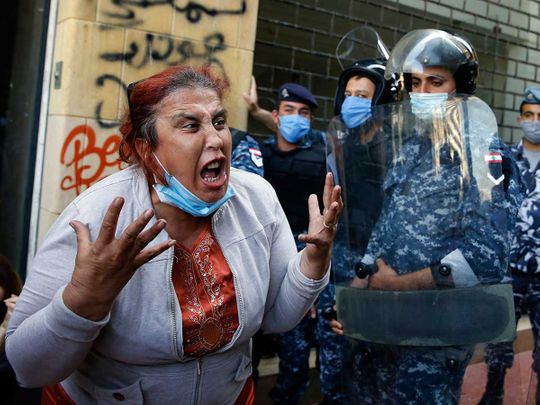
Dubai: The situation in Lebanon has taken a turn for the worse this year, with a financial meltdown rooted in decades of state corruption and topped off with a pandemic that has rocked the world.
The crisis that the Lebanese people are going through marks the biggest threat to its stability since the 1975-90 civil war.
Our elders say that during the civil war, people never died of hunger. They were never poor.
In October 2019, the Lebanese pound lost 70 per cent of its value, which has sent inflation rates soaring, raising fears of mass hunger with savers frozen out of their accounts in a paralyzed banking system. It is a dramatic consequence for the Lebanese, who never expected that they would end up getting poorer day by day, and end up losing their lifetime savings.
Economist Razi El Hajj explained to Gulf News, “The Lebanese state has been officially declared broke after the 17th of October revolution in 2019. The state has been experiencing difficulties in the last ten years, from 2011 till today, when foreign funds started decreasing due to geopolitical-political reasons.
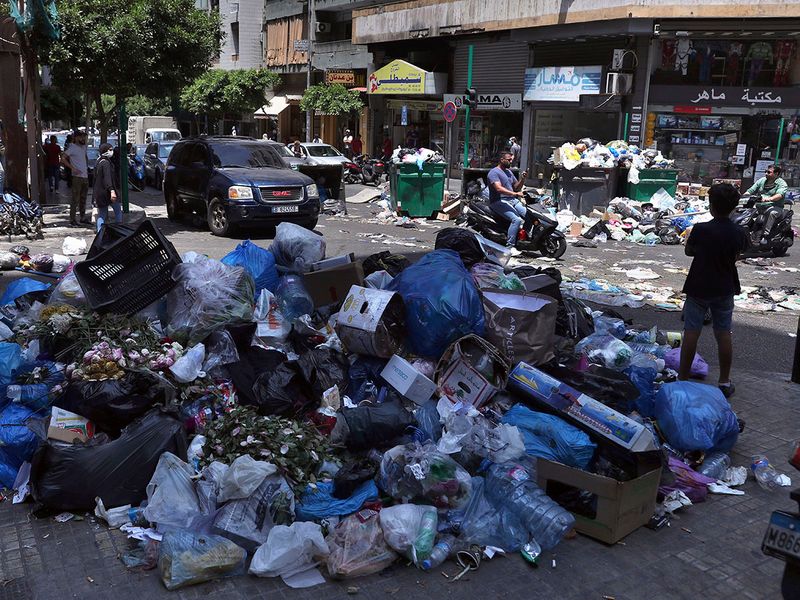
"The Lebanese economy depends on external funding, from the Gulf and from Europe. Both have stopped sending money unless proper reforms are introduced. Which the Lebanese state has failed to provide, plus defaulted on its hefty foreign currency debt, and failed in stabilizing the exchange rate of the Lebanese pound against the dollar,” he continued.
France has led efforts to get Lebanon to implement reform, hosting a donor meeting in Paris in 2018 when Beirut won more than $11 billion in pledges for infrastructure investment. The money hinged on reforms, which were promised but not delivered.
The cherry on top is Hizbollah being a leading force in the government meaning the international society is refusing to help.
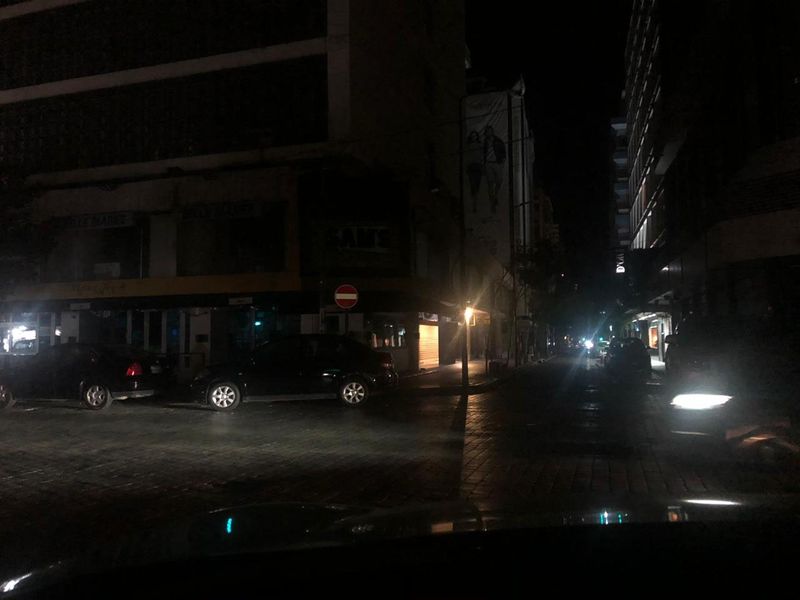
Lebanese citizens
In all this chaos, the side suffering the most are Lebanese citizens. They are paying the price as banks have withheld their deposits and if those deposits are in Lebanese pounds then they have lost more than 70 per cent of their value. If they are in US dollars, then these funds are being kept hostage by the bank.
I gave up on my Dawri and my wedding ceremony, due to the crazy increase in prices. We decided to save the money for the uncertain future
If you ask any regular citizen on the street about their problems, they will blame the corruption of politicians, who have been ruling the country for the past 30 years now.
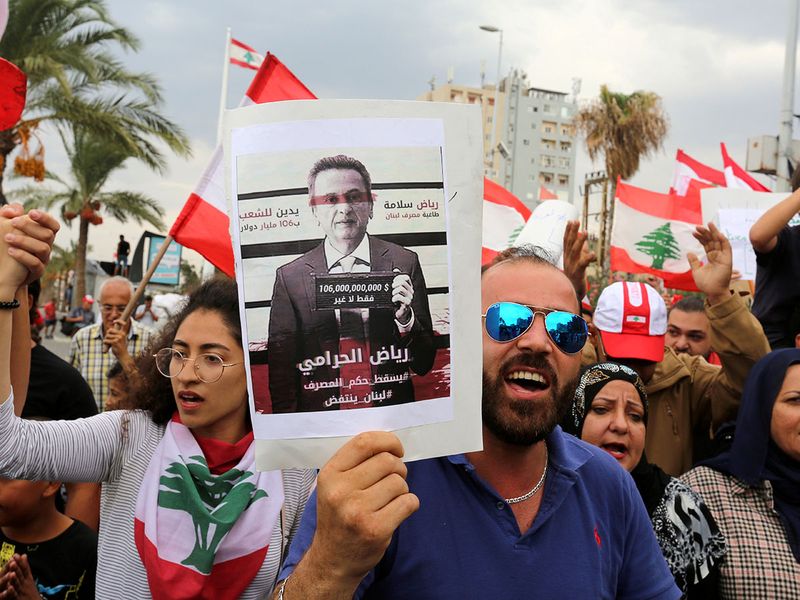
“It’s both the people who elected those politicians and the politicians who made us drown in this crisis, and they cannot get us out of it because they are still following the same way of ruling. They had plenty of time to undertake reforms, especially recently with the COVID-19 pandemic lockdown of the country, but they did not take this opportunity," according to El Hajj.
Aside from the logical explanation by El Hajj on the situation in Lebanon, the streets reflect the agony of the Lebanese people.
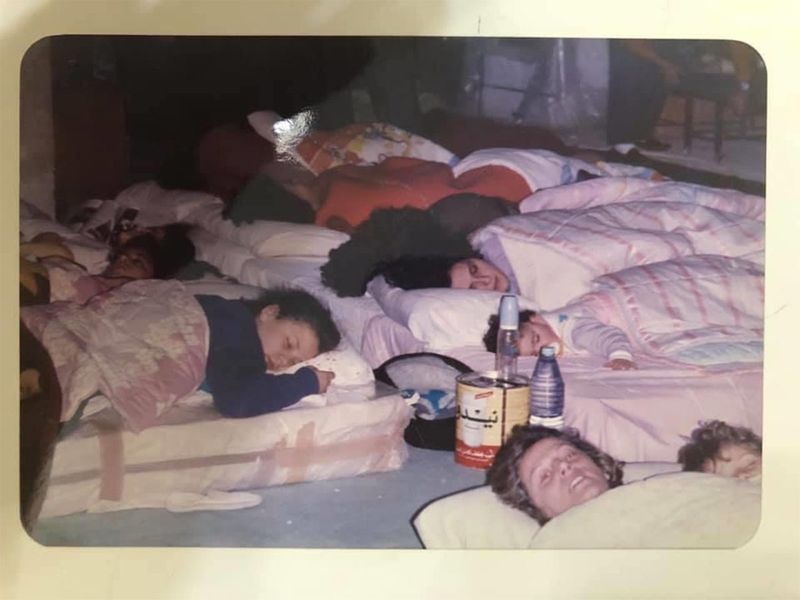
Soha Menassa, a Lebanese citizen, summarised the situation succinctly. “While looking at family photos, I came across this particular photograph from the late 80s, taken in our own building’s underground shelter, where my family used to hide during the civil war.
"In addition to us, uncles, aunts and cousins, families from the whole neighbourhood used to join us as it was the only safe space in the area. Today we are facing another kind of war, against corruption, large scale mismanagement of state affairs, inflation and an economic crisis. A war with no weapons of mass destruction, but as hard and as destructive as the previous one. Our elders say that during the civil war, people never died of hunger. They were never poor."
Menassa continues, "Unlike today people have lost everything. They are dying because they cannot buy enough food to sustain themselves and their children. Not even the milk that you see in the photo. Because of corrupted politicians, failed economic policies and let’s face it, because of our own inability to hold war criminals responsible for their crimes.”
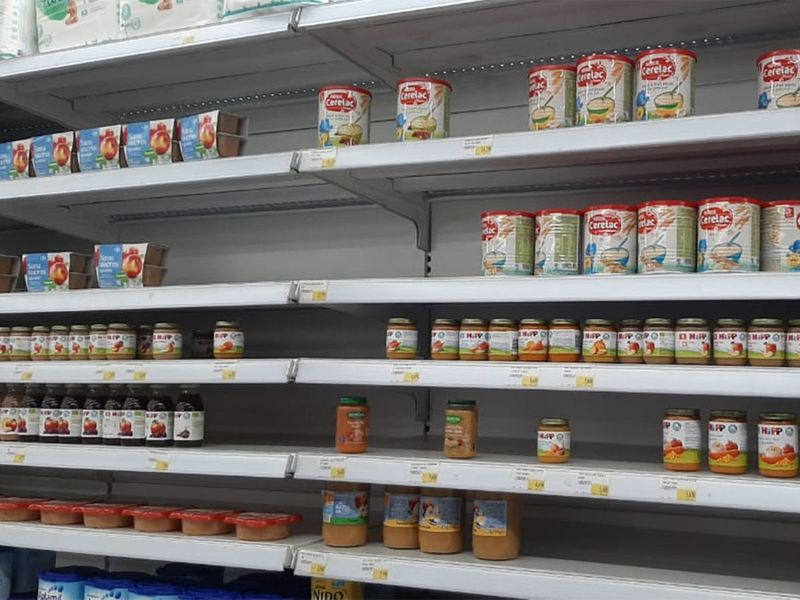
Haig Izmirian, a 73-year-old man who owns a jewellery shop for the last 27 years in one of the oldest gold markets in Beirut, described the situation as the worst ever. “2019 and 2020 are the worst years that have passed on our industry. I have lived through the war, and my business did not suffer as it is suffering today. We can no longer import gold and sell because of the difference in currency which means we already have to buy in a high price, add on top the spread of coronavirus.”
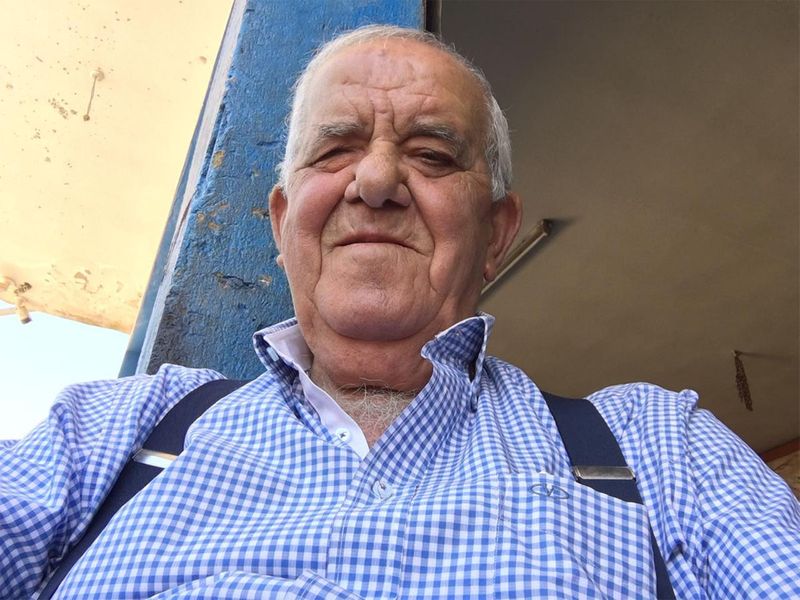
He adds, “It became a competition between the shop owners in the market these days, who will stay standing and working in this bad situation. We as merchants used to purchase goods every month, now we are not able to do so because of the low purchasing power of people. Few are still buying jewellery, while we are a culture who buy jewellery in quantities. Lebanese people buy jewellery to celebrate every single occasion be it graduation, new born, birthday, wedding, engagement. Now we have become like the Europeans and it’s all because of the dollar against pound situation, which killed us.”
Initially the Lebanese pound was pegged to equal LBP 1500 to dollar. When the pound lost its value the state still kept it the same, while the black market was exchanging at one point a dollar to LBP 7500. Meaning if you get your salary or have your money in Lebanese pounds then you will not be able to live when everything is being sold in dollars.
It became a competition between shop owners these days, who will stay standing and working in this bad situation. We as merchants used to purchase goods every month, now we are not able to do so.
Wissam Allam, an employee in a retail shop expressed his fear for the future. “My daily fear is that the owner of the store will declare bankruptcy, close the shop and I will sit without a job after working for 19 years in this field. My salary was already cut 50 per cent because of COVID-19 closure. Now am thinking seriously to leave the country and immigrate to support my family. Since in other countries they respect the human being and give them their rights, but the opportunity to travel for those like me is very low because US and Canada and even Europe prefer the most youthful and I am already in my 40s.”
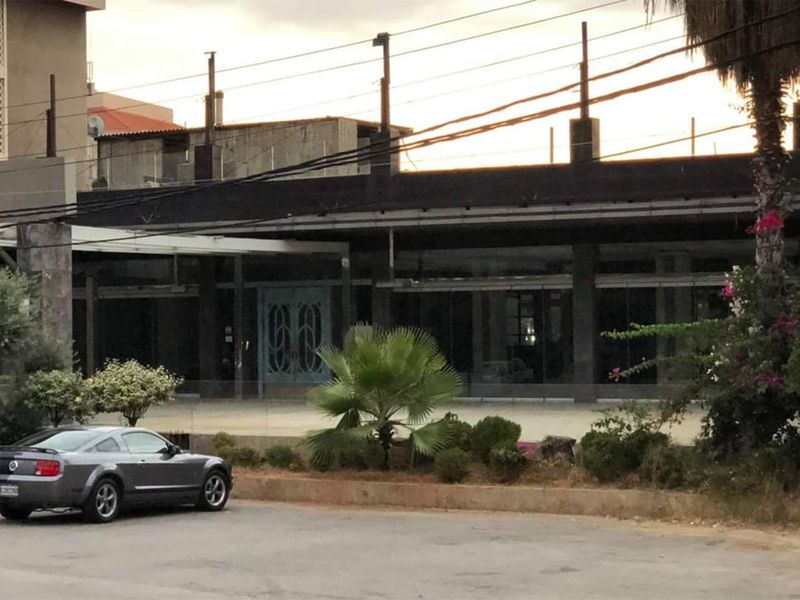
Charlotte Karam, an associate professor at the American University of Beirut (AUB), has founded a centre to facilitate career success for women across the Arab world and with her team helped draft legislation against sexual harassment in Lebanon, the first of its kind.
Like many of Lebanon’s brightest people, Karam plans to immigrate as the country sinks ever deeper into crisis; part of a brain drain that points to crushed hopes and fear for the future.
“Leaving Lebanon is leaving a part of me. It’s a huge conflict,” said Karam, 45, a mother of two with a PhD in Applied Social Psychology.
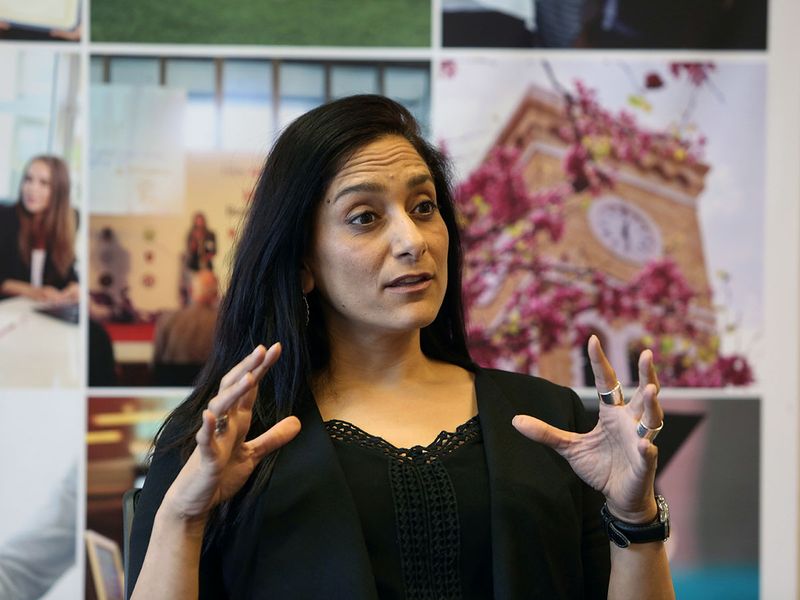
“Every fibre in my body is telling me I have to stay to continue my work from Lebanon, but my fear is for the kids and their future,” said Karam, who was born in Canada to Lebanese parents.
In August, she will move back to Canada with her family, a decision shaped by the turmoil that has swept Lebanon since its financial system collapsed last year, shattering lives nationwide.
The health sector
When the economy goes down, also the health sector deteriorates.
Samar Zeitoun, a 34-year-old mother of two and a pharmacist explained that the country is most probably going in the direction of having a major deficit in medicine supplies by the end of the year. “Our suppliers are cutting on us. For example, my pharmacy used to get 10 boxes of X a week. Now the supplier provide us with much less. People now are stocking especially on chronic diseases medicines, as they are scared suppliers will run out of stock soon. And to be honest neither the supplier, nor the pharmacies know what is coming next, and people are only panic buying,” she says.
I have no one to support me, I am on my own to raise my 6-year-old boy, my fear is that one day I wake up with no roof above me and my son.
Ahmad Saleh, a 24-year-old junior, was fired after working in a company that gave him a good salary. “When the crisis started, my company indirectly tried to make me quit so they will not pay my compensation. They started treating me badly and giving me duties that are not mine and pressuring me, till I resigned,” he said.
Not all people have the luxury to quit their jobs in Lebanon many need their daily income to feed their children, and with the dire situation now, many employers are taking advantage with extended working hours at lower wages.
Maysa Choukeir, a single mum and a teacher in a private school said, “I have no one to support me, I am on my own to raise my 6-year-old boy, my fear is that one day I wake up with no roof above me and my son. My salary has been cut, and many times, I find myself struggling to pay the rent.”
Haneen planned to get married this summer but now finds herself compromising on many of her dreams because of the dire situation. “Right now I am satisfied with a ring only, I gave up on my Dawri and my wedding ceremony, due to the crazy increase in prices. We decided to save the money for the uncertain future,” she says.
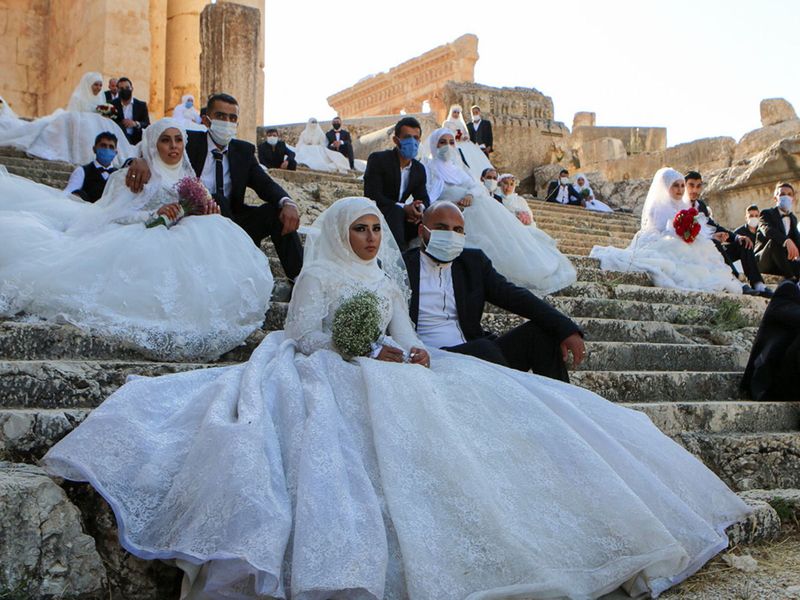
There are big issues in Lebanon and its citizens are trying to adapt to the difficult circumstances they are facing. But in the presence of corrupt politicians - interested only to benefit themselves - it appears the situation will only get worse before it gets better. Lebanon needs those who put aside partisan dependencies and work for citizens and give them a right to live in peace.
Lebanon's ordeal - Economic and political crises since civil war
2005: Former Lebanese Prime Minister Rafik al-Hariri is killed on Feb. 14 when a massive bomb exploded as his motorcade travelled through Beirut; 21 others also died. A combination of subsequent mass demonstrations and international pressure force Syria to withdraw troops from Lebanon. Lebanese Shi’ite allies of Damascus stage their own big rallies in support of Syria. Lebanon enters a new era free of Syrian domination. Hezbollah, an Iran-backed group and close ally of Damascus, enters government for the first time.
2006: In July, Hezbollah crosses the border into Israel, kidnaps two Israeli soldiers and kills others, sparking a five-week war. At least 1,200 people in Lebanon and 158 Israelis are killed. After the war, tensions in Lebanon simmer over Hezbollah’s powerful arsenal. In November, Hezbollah and its allies quit the cabinet led by Western-backed Prime Minister Fouad Siniora and organise street protests against it.
2007: Hezbollah and its allies maintain a sit-in protest against the Siniora government for the entire year. Their stated demand is veto power in the government. In May, fighting erupts at a Palestinian camp in northern Lebanon between the Lebanese army and Sunni Islamist militants of the Fatah al-Islam group. Thousands of Palestinian refugees are forced to flee the Nahr al-Bared camp. In September, Lebanese troops seize control of the camp after more than three months of fighting that kills more than 300 people.
2008: May 6, 2008 - Siniora’s cabinet accuses Hezbollah of running a private telecoms network and installing spy cameras at Beirut airport. The cabinet vows legal action against the network.
May 7 - Hezbollah said the move against its telecoms network was a declaration of war by the government. After a brief conflict Hezbollah takes control of mainly Muslim west Beirut.
May 21 - After mediation, rival leaders sign a deal in Qatar to end 18 months of political conflict. Parliament elects Michel Suleiman, the army chief, as president.
2011: In January, Saad al-Hariri’s first government is toppled when Hezbollah and its allies quit because of tensions over the U.N.-backed Special Tribunal for Lebanon. The tribunal later indicts four senior members of Hezbollah for the murder of Rafik al-Hariri. Hezbollah denies any role in the assassination. Its leader, Sayyed Hassan Nasrallah, said the authorities would not be able to find the indicted men.
A fifth Hezbollah member is indicted in 2013.
2012: Hezbollah fighters deploy into Syria, secretly at first, to aid Syrian government forces facing a mostly Sunni rebellion against President Bashar al-Assad. The group plays a major role in beating back the rebellion.
2015: A crisis about waste erupts when authorities close the main landfill site near Beirut, having arranged no alternative. Large protests broke out as rotting waste filled streets and demonstrators chanted “You stink!” at the government. It became a glaring symbol of the failures of a sectarian power system unable to meet basic needs like electricity and water.
2017: Saad Al Hariri’s ties with Saudi Arabia, which is furious at Hezbollah’s expanding role in Lebanon, hit a nadir in November 2017 when it was widely acknowledged Riyadh had forced him to resign and held him in the kingdom. Saudi Arabia and Hariri publicly deny this version of events, though France’s Emmanuel Macron confirmed that Hariri was being held in Saudi Arabia.
2019: Amid a stagnant economy and slowing capital inflows, the government is under pressure to curb a massive budget deficit. Proposals to cut the state wage and pension bill meet stiff opposition. The government vows to enact long-delayed reforms but fails to make progress that might unlock foreign support.
Oct. 17 - A government move to tax internet calls ignites big protests against the ruling elite. Lebanese of all sects take part, accusing leaders of corruption and economic mismanagement.
Hariri quits on Oct. 29, against the wishes of Hezbollah. Lebanon is left rudderless as the crisis deepens. A hard- currency liquidity crunch leads banks to impose tight curbs on cash withdrawals and transfers abroad.
2020: After two months of talks to form a new, Hariri-led coalition government hit a dead end, Hezbollah and its allies back Hassan Diab, a little-known academic and former education minister, for the post of prime minister.
March 7 - Diab announces Lebanon cannot repay a maturing bond and calls for negotiations to restructure its debt.
May 1 - Beirut signs a formal request for IMF assistance after approving a plan setting out vast losses in the financial system. The banking association rejects the plan, saying its proposals for restructuring the banking sector would further destroy confidence in Lebanon.
July - IMF talks are put on hold pending agreement on the Lebanese side over the scale of financial loses. The Lebanese pound touches lows close to 10,000 to the dollar. The rate was 1,500 in October.








